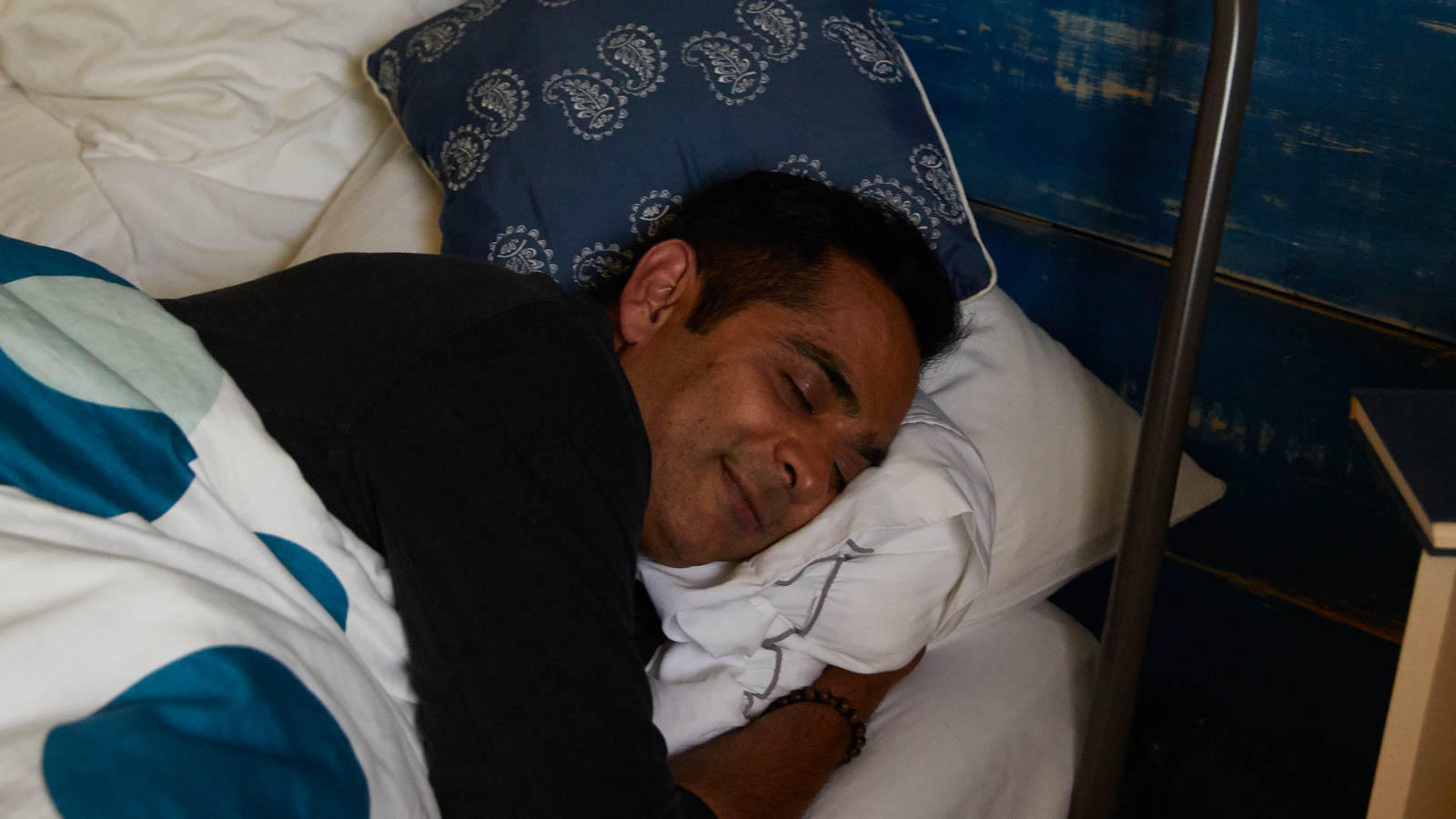Each night, millions of individuals in the United States have difficulty falling asleep or staying asleep. While for some this is a temporary problem, for others insomnia can become a chronic issue that detrimentally affects day-to-day life. An estimated 10% of American adults experience insomnia, which occurs at least three times per week.
According to The 2018 National Sleep Foundation Sleep in America Poll, only 46% of those who identified as having poor sleep patterns felt that they were very effective in getting things done during the day, compared with 89% of those who identified their sleep patterns as excellent.
Restful, nourishing sleep is not only essential to getting things done and performing at one's best, it also supports optimal functioning of the immune system, mood stability, improved energy and motivation levels, and enhanced overall well-being.
Unfortunately, the quest to achieve a good night's sleep can lead to those with insomnia becoming addicted to sleeping pills, which comes with a range of potentially dangerous side effects such as dizziness, daytime drowsiness, and a higher risk of mortality.
 Photo by: Gina Coleman/Weedmaps
Photo by: Gina Coleman/WeedmapsImage lightbox

Anecdotal reports indicate that CBD oil may help to induce sleepiness, with no known adverse side effects.
Research overview
There is conflicting evidence about the efficacy of CBD to support healthy sleep regulation. Some studies show that although CBD oil may help some individuals to fall asleep and stay asleep, it can cause wakefulness or disturbed sleep in others.
At present, there is also a lack of knowledge about the mechanisms by which CBD modulates sleep. It has been theorized that it may change dopamine levels, or exert effects over the body's cannabinoid system, including the sleep-wake cycle.
The studies
Chronic insomnia is often closely linked to anxiety. Those who experience sleeplessness, or have trouble staying asleep, are often anxious about aspects of their waking life or anxious about their poor sleep patterns.
A 2019 retrospective case study in the Permanente Journal investigated the use of CBD for anxiety and sleep. Twenty-five of the 72 patients surveyed reported poor sleep as a primary concern, while 47 reported anxiety as a primary concern.
At the first monthly assessment following the beginning of CBD treatment (25-175 milligrams per day), 66% of patients experienced an improvement in sleep, while 25% experienced worse sleep. At the two-month mark, 56% reported an improvement in sleep compared with the previous month, while 26% reported worsening problems associated with their sleep. The patients demonstrated a more sustained response to CBD as a treatment for anxiety than sleep and experienced a more marked reduction in their anxiety than their insomnia.
The authors also noted that the CBD was well-accepted and well-tolerated by the patients in the study, with minimal side effects.
A 2006 study published in the journal of the Federation of European Biochemical Societies Letters, found that CBD increased wakefulness and decreased REM sleep in rats during their inactive cycle (when the lights were on). REM sleep refers to rapid eye movement, the phase of sleep in which dreaming occurs. No changes in sleep were observed during darkness, when rats are typically active. CBD appeared to increase activity in waking-related areas of the brain. The study also found that CBD induced an increase in dopamine release. Dopamine is one of several neurotransmitters involved in wakefulness.
 Photo by: Gina Coleman/Weedmaps
Photo by: Gina Coleman/WeedmapsImage lightbox

This animal study suggests that, despite CBD's popularity to aid sleep, it may in fact promote wakefulness by decreasing REM sleep. However, for those individuals with a REM sleep disorder, this could be beneficial. In fact, a 2014 study in the Journal of Clinical Pharmacy and Therapeutics, researchers reported several case studies where Parkinson's patients with REM behavior disorder experienced marked improvement when using CBD.
Similarly, patients with post-traumatic stress disorder (PTSD) also often have sleep disturbances and nightmares, which occur during REM sleep. In a 2019 study in the Journal of Alternative and Complementary Medicine, cannabidiol improved the sleep quality of 38% of the patients with PTSD, and reduced nightmares.
A 2018 randomized controlled trial with human participants published in Frontiers in Pharmacology investigated the effects of CBD on the sleep-wake cycle of normal, healthy volunteers. Twenty-seven research participants received either CBD or a placebo over two nights. The study found that CBD did not produce any significant effect, nor did it interfere with the normal sleep cycle of these healthy individuals.
 Photo by: Gina Coleman/Weedmaps
Photo by: Gina Coleman/WeedmapsImage lightbox

Insomniacs who ingested daily doses of 40, 80, or 160 milligrams of CBD reported having a better night's sleep and less dream recall than those who took a placebo. The authors of the study hypothesized the CBD may decrease REM sleep capacity, or decrease the frequency of periods of wakefulness during the night, which helps with remembering dreams.
Patient perspectives
For a long time, chronic insomnia severely affected Paul Miller's waking life. “I had tried melatonin and various herbal teas, but nothing worked. I was stressed out and exhausted, and it was a vicious cycle. The more I couldn't sleep, the more stressed I became about it.”
When a friend gave Miller a 500 milligram tincture of CBD oil to help with his sleeplessness, he initially set it aside.
“I knew nothing about it and was hesitant to even try it because I had no idea what the side effects might be,” Miller explained to Weedmaps News.
One restless night, however, Miller was so desperate for sleep he took the CBD oil down from the shelf and tried it.
 Photo by: Gina Coleman/Weedmaps
Photo by: Gina Coleman/WeedmapsImage lightbox

“It worked so well that I started researching more about it, and that's what led me to starting our company, Lokus Nutrition, a CBD company. The reason we exist is because of my insomnia.”
Daniel Robbins turned to CBD as an alternative to other sleep medication. “I have a hard time falling asleep and used to take melatonin or Sleep Aid, but would have side effects like a racing heart, or waking up very groggy and unable to go back to sleep.”
He started experimenting with CBD gummies, taking 10-20 milligrams before sleep, with no other medication. “At first I noticed a feeling of relaxation and then I would begin to feel sleepy. “I fall asleep faster, with zero side effects. It has done wonders.”
Robbins notes that the CBD also helps to manage his anxiety. “Additionally, I take it in the morning and feel calm when I start to have anxiety coming on as I often get very stressed and anxious.”
Bottom line
Studies show that CBD may support healthy sleep in some individuals, but it can potentially increase sleeplessness in others. Further research into appropriate dosages and more randomized clinical trials in the future may offer greater insights and understanding into the use of CBD as a sleep aid.
Major contributions from Dr. Adie Rae.

